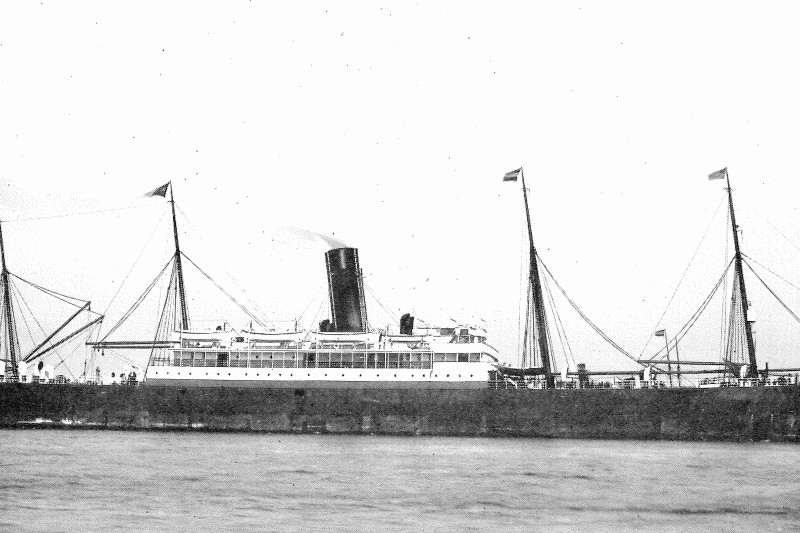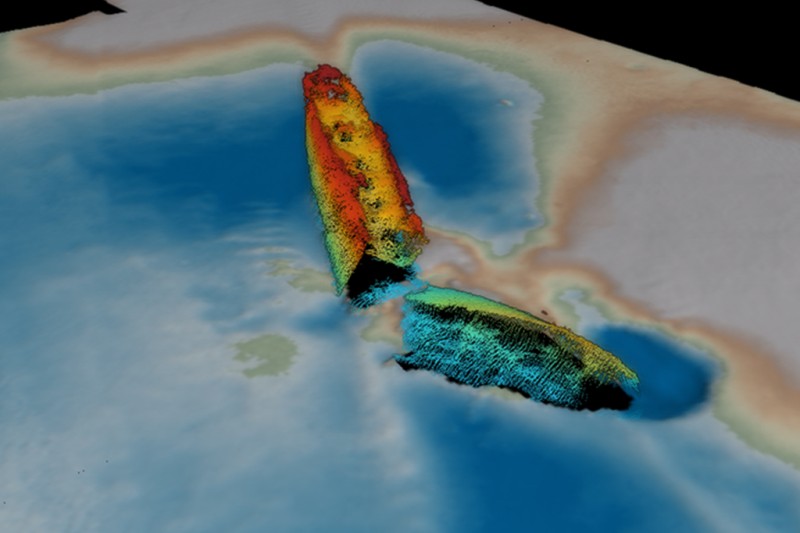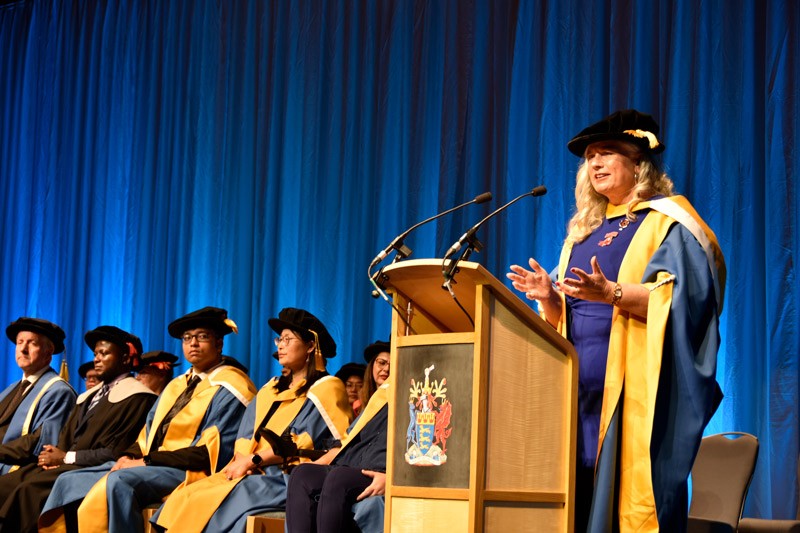 The SS Mesaba. Credit: State Library of Queensland
The SS Mesaba. Credit: State Library of QueenslandThe ship which sent an iceberg warning to the RMS Titanic, before the ocean-liner sank, has been identified lying in the Irish Sea by a team from Bournemouth and Bangor Universities.
In 1912 the merchant steamship SS Mesaba was crossing the Atlantic and sent a warning radio message to the RMS Titanic. The message was received, but never reached the bridge. Later that night, the Titanic hit an iceberg and sank on her maiden voyage. More than 1,500 people died.
The SS Mesaba continued as a merchant ship over the next six years before being torpedoed whilst in convoy in 1918 from Liverpool to Philadelphia. Twenty people died, including the ship's commander.
Using multibeam sonar technology, the research team were finally able to identify the wreck and reveal her position for the first time.
 Multibeam sonar image of SS Mesaba. Image credit: Bangor University
Multibeam sonar image of SS Mesaba. Image credit: Bangor UniversityFor the marine archaeologist, multibeam sonar has the potential to be as effective as the use of aerial photography has been for archaeologists on land. It can map sea beds in such detail that superstructures can be revealed on the sonar images.
The SS Mesaba was one among 273 shipwrecks lying in 7500 square miles of the Irish Sea, which were scanned and cross-referenced against the UK Hydrographic Office’s database of wrecks and other sources. They include trawlers, cargo vessels, submarines, large ocean liners and tankers, as wells as rare ship designs and naval graves.
Details of all the wrecks have been published in a new book, Echoes from the Deep by Dr Innes McCartney, who worked on the project while at Bournemouth University.
Dr McCartney said:
“The results of the work described in the book has validated the multidisciplinary technique employed and it is a ‘game-changer’ for marine archaeology.
“Previously we would be able to dive to a few sites a year to visually identify wrecks. The Prince Madog’s unique sonar capabilities has enabled us to develop a relatively low-cost means of examining the wrecks. We can connect this back to the historical information without costly physical interaction with each site.
"It should be of key interest to marine scientists, environmental agencies, hydrographers, heritage managers, maritime archaeologists, and historians.”
Dr Michael Roberts who led the sonar surveys at Bangor University added:
“The expertise and unique resources we have at Bangor University, such as the ‘Prince Madog’ enable us to deliver high quality scientific research in an extremely cost-effective manner. Identifying shipwrecks such as those documented in the publication for historical research and environmental impact studies is just one example of this. We have also been examining these wreck sites to better understand how objects on the seabed interact with physical and biological processes, which in turn can help scientists support the development and growth of the marine energy sector.”
Echoes from the deep by Innes McCartney is published by Sidestone Press September 27 2022 Paperback ISBN: 9789464261165 | Hardback ISBN: 9789464261172 |



